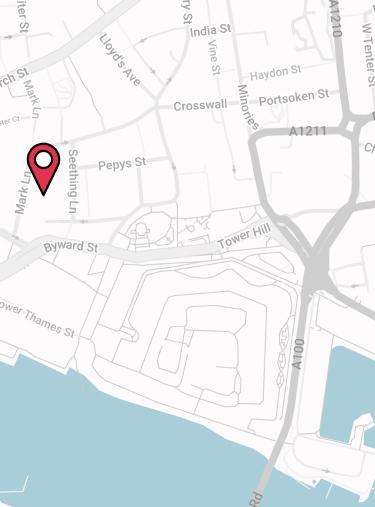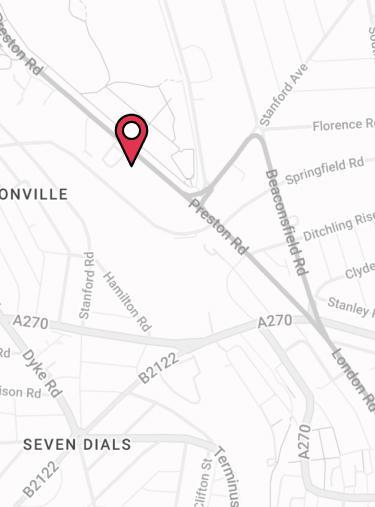The 2025 Drewberry Workplace Pensions Survey
Welcome to the latest edition of the Drewberry Workplace Pensions Survey. There’s plenty to dive into for 2025, and we’ve uncovered some fascinating insights into what really matters to people about their Workplace Pensions.
As specialists in employee benefits, we set out to uncover what drives pension engagement and where employers can make the biggest impact. We surveyed 1,000 working-age professionals across the UK, and the findings are clear: employees value their pension, but they’re crying out for more education… along with more in their retirement fund. Let’s explore what we found.
The Headlines
- 🤔 Employees Don’t Understand Pensions…
Only 15% of employees feel they truly understand how pensions work. 57% don’t know how much they need to save for a comfortable retirement and 63% don’t even know where their current workplace pension is invested. - 😕 ….But Are Relying On Them For A Comfortable Retirement
The majority of employees are expecting their workplace pension to be their main source of income after work. But, 68% don’t believe it will be enough for a comfortable retirement. - 🫵 They Want Employers To Fill The Knowledge Gap
72% of employees want more pension guidance from their employer, particularly on saving for a comfortable retirement and the benefits of salary exchange. - 🙋♀️ There’s A Gender Gap In Pensions Understanding
Only 8% of women say they fully understand pensions, compared to 24% of men. Women are also less likely to be engaged with their scheme, with 53% admitting they don’t know how much their employer contributes. - 💰 Employees Want Bigger Contributions
58% would prefer bigger pensions over other benefits, emphasising the appeal of enhanced contributions. Nearly half (48%) would pay more into their pension if their employer matched it, suggesting a strong incentive for matching schemes. - 🎯 Salary Exchange Is An Untapped Opportunity
56% of employees aren’t reaping the tax benefits of Salary Exchange, despite 52% wanting to learn about this option. It’s a missed opportunity for businesses to provide better education and engagement with their Workplace Pension scheme.

Top Stories From The Survey Results
- Only 15% of Employees Truly Understand Pensions — How Employers Can Bridge the Knowledge Gap
- Rethinking Rewards: 58% Of Employees Would Prefer Bigger Pensions Over Other Benefits
- Unlocking Tax Benefits In Your Workplace Pension: 52% Of Employees Want To Know More About Salary Exchange
- Mind the Gap: Only 8% Of Women Say They Fully Understand Their Pension
Retirement Savings Are A Mystery For Most
To start things off, we wanted to gauge employee’s understanding of retirement savings and pensions in general. The data shows that knowledge is lacking, and it’s driving a number of worries about retirement and life after work.
| What Do Employees Know About Pensions And Retirement? | |
|---|---|
| 🧠 Only 15% claim to know “a lot” about pensions |
🤷 57% have no idea how much they need to save for a comfortable retirement |
| 👴 Employees are most concerned about not being able to retire when they want (24%) and running out of money (21%) |
|
UK Employees Are Lacking Pensions Knowledge
When asked about their understanding of pensions, 84% of employees admitted to having little or no knowledge at all.
- 15% said “a lot”
- 25% said “not very much”
- 55% said “a little”.
Most Employees Are Clueless About How Much To Save
When asked if they know how much to save for a comfortable retirement, a whopping 61% said they didn’t know how much they would need.
- 33% don’t know the amount, but have some saving plans
- 24% have no idea how much they need or how to achieve it
- 24% said they know how much they need and how to achieve it
- 15% know the amount, but not how to achieve it.
Employees Are Worrying About Retirement
When asked about their biggest financial concern for retirement, the majority of employees (24%) said they’re worried that they won’t be able to retire when they want to. This was followed by:
- Running out of money (21%)
- Not having enough to maintain current lifestyle (20%)
- Inflation reducing the value of savings (13%)
- I’m not thinking about retirement yet (13%).
What Employees Don’t Know About Retirement Could Cost Them
The results highlight a worrying gap in pension knowledge and retirement planning. If employees don’t know how much they need to save for retirement, how can they be sure their Workplace Pension will be enough? They can’t.
Given that the average pension pot in the UK is £20,077, but a pot of £63,000 is needed for a “minimum lifestyle”, employee fears of not being able to retire when they want to aren’t wholly unfounded. And with the cost of living only increasing, so is the pension amount required for later years.
Improving financial education, providing clearer pension guidance, and helping employees understand how much they need to save could ease anxieties and encourage better long-term planning. Without action, many workers risk facing an uncertain retirement – and employers risk a workforce distracted by financial worries.
It’s important to extend discussions beyond older employees nearing retirement. Encouraging younger employees to start contributing to their pensions early can significantly increase their savings over time.
Employees Value Their Workplace Pension, Despite Knowledge Gaps
After understanding people’s general knowledge of pensions, we wanted to find out more about what they know when it comes to their Workplace Pension (including what their expectations are from employers), especially as the majority of employees are relying on it for their retirement. Here’s what we found.
| Employees Are Relying On Their Workplace Pensions | |
|---|---|
| 👍 89% are opted in to their current Workplace Pension scheme |
💸 The main reason for opting out was affordability of payments |
| 😯 The majority (76%) are relying on Workplace Pensions to fund their retirement |
☹️ 68% don’t believe their Workplace Pension will be enough to keep them comfortable |
| But They Don’t Understand Them… | |
| 🧐 Only 33% fully understand how their current pension scheme works |
🤯 17% said they don’t even know which provider their pension is with |
| 🧮 Nearly half of employees (47%) don’t know the exact percentage their employer contributes |
🤷♀️ 38% don’t understand the tax relief that comes with a Workplace Pension |
| 🌎 The majority of employees (70%) said it’s important their pension contributions get invested ethically, but only 18% know how to access their ethical funds |
|
Opt-ins Remain High, But Understanding Is Low
It’s good news that 89% of employees are opted in to their Workplace Pension, with a small number either opted out or planning to in the future.
Of those who have either opted out or are planning to, affordability of payments was the main cause, with 22% of respondents stating this as the reason.
Employees Are Relying On Workplace Pensions, But Don’t Think It’s Sufficient
Despite the high levels of Workplace Pension opt-ins, 68% of employees don’t think it’ll be enough to fund their retirement.
- 68% don’t think it will be enough
- 13% think it will be enough
- 19% aren’t sure.
This is particularly concerning given that the majority of employees are relying on their Workplace Pension to fund their golden years. When asked “How do you plan to fund your retirement?”, pensions from previous employers topped the list.
- Pensions from previous employers (76%)
- State Pension (71%)
- Investments (27%)
- Downsizing home / equity release (14%).
Relying on What They Don’t Understand: The Pension Paradox
While most employees are relying on their Workplace Pension to fund their retirement, the vast majority admit to not fully understanding how it works. Only 33% fully understand their current scheme.
47% said that they didn’t know the exact percentage their employer was contributing.
And even more strikingly, 17% of employees didn’t even know who provides their Workplace Pension.

Communication is key when it comes to Workplace Pensions. You’re legally obliged to provide certain information, but it’s important to go one step further.
Ensuring your staff clearly understand their scheme can help them to value it as a benefit – you’d be surprised at the impact good benefits can have.
Richard Noble
Senior Consultant, Employee Benefits
Employees Don’t Understand Pension Tax Relief
If 17% of employees don’t even know who their pension provider is, it’s perhaps no surprise that so many are also in the dark about how their pension actually benefits them. In fact, 38% of employees said that they’re unaware of the tax relief that comes with their pension contributions.
Ethics Are Important, But Understanding Is Lacking
This lack of understanding doesn’t just create confusion – it could mean employees’ pensions are being invested in ways that don’t align with what they believe in. Without clear guidance, they may be supporting causes they’d normally avoid, simply because they don’t realise they have a choice.
When asked “How important is it to you that your pension money gets invested ethically?”, 70% of employees said it was either “very” or “somewhat” important.
However, only 18% know how to access their scheme’s ethical funds. This highlights a missed opportunity for employers to engage with what their team is passionate about.
Ethical Workplace Pensions resonate strongly with employees, offering them the chance to align their investments with their personal values. This shows a growing trend where employees are looking beyond the numbers, seeking a meaningful and responsible approach to their retirement savings. Would your employees know where their pension was invested?
The Workplace Pension Gap You Might Be Overlooking
Without a solid understanding of pensions, how can employees be expected to make informed decisions about their financial future? The truth is, they won’t be able to.
While pensions may not be the most exciting topic, the financial advantages are significant – yet they’re often misunderstood or overlooked. This disconnect not only undermines employees’ ability to plan effectively for retirement, but also leaves them vulnerable to making choices that may not be in their best long-term interest.

It’s no longer enough to simply offer a pension — employees need the clarity, confidence and support to engage with it. And they’re looking to their employers to lead the way.
Richard Noble
Senior Consultant, Employee Benefits
Women Are At Risk Of Poorer Retirement Outcomes
The data reveals a clear and concerning gap between men and women when it comes to understanding pensions and their current scheme — and the implications could have a lasting impact on financial wellbeing.
| Key Gender Gaps in Pension Awareness | |
|---|---|
| 😔 Only 8% of women say they know ‘a lot’ about pensions vs. 24% of men |
🧮 41% of women understand how pension tax relief works, compared to 63% of men |
| 🧐 Just 23% of women said they understand their current workplace pension compared to 56% of men |
👫 While 62% of men are aware of their employer’s pension contributions, only 46% of women say the same |
Pension Awareness Lower Among Women
Only 8% of women say they know “a lot” about pensions, compared to 24% of men, and 32% of women admit to knowing “not very much”, double the rate of men (16%).
Women Less Informed About Their Workplace Pension
Women are more than twice as likely as men to say they don’t understand how their current pension scheme works.
Fewer Women Know How Much Their Employer Contributes
A significant knowledge gap also exists around employer contributions, with just 46% of women saying they know how much their employer pays into their pension — compared to 62% of men.
Men Are More Likely to Understand Pension Tax Relief
Pension tax relief is one of the most valuable, and often overlooked, benefits of saving for retirement. It can significantly boost contributions at no extra cost to the individual. Yet despite its importance, many women still don’t fully understand how it works, meaning they could be missing a key opportunity that their male colleagues are already taking advantage of to grow their retirement pot.
Empowering Women to Take Control of Their Pension
A lack of pension understanding isn’t just a short-term issue, it can have lasting consequences. With women less likely to grasp key aspects like tax relief and employer contributions, many could be missing out on opportunities that their male colleagues are already using to their advantage. Over time, that gap adds up, leaving women at greater risk of falling short financially in retirement.
This mirrors wider research from the Money and Pensions Service, which shows that women typically save less for later life. But it doesn’t have to stay that way.
Employers have a real opportunity to shift the dial. By improving how pensions are communicated, offering targeted education, and making benefits like Salary Exchange or matched contributions easy to understand and access, you can help level the playing field, and give all employees a fairer shot at a more secure financial future.
The Employer Opportunity: Driving Better Pension Outcomes
We’ve seen that many employees struggle to grasp even the basics of their pension – from knowing who their provider is to understanding tax relief or how their money is invested. But what’s clear is that they don’t want to navigate this alone – they’re actively looking to their employers for guidance and support.
| Employees Want Employers To Educate Them | |
|---|---|
| 👩🏫 72% want more pension education from their employer |
🔁 52% are keen to learn about the tax benefits that come from salary sacrifice |
| 🤓 When asked what areas of pension interest you, ‘financial planning and how to save enough for retirement’ along with ‘practical steps for drawing out your pension came out top’ |
|
| Enhanced Pension Contributions Are A Priority | |
| ⬆️ 60% of employees want their employer to contribute more to their pension |
🤓 58% of employees would take bigger pension contributions over other benefits |
| 💰 The majority of employees would be up for increasing their pension contributions – if their employer matched it |
|
Employers Must Lead On Education
Employees are crying out for pension schooling from their employer, as 72% expressed a desire for employer-led education on Workplace Pensions (up from the 66% of those we surveyed last year).
When asked “do you feel your employer could do more to educate you about your company pension”:
- 31% said “yes, I’m not clued-up at all”
- 41% said “had some education but could do with more”
- 20% said “no, they communicate well”.
It’s not just that employees want more support – they’re clear about where they need it. When asked where they’d most value additional pension education, employees highlighted several key areas. Topping the list were:
- Financial planning and how to save enough for retirement
- Practical steps for drawing a pension and what happens at retirement
- Understanding Salary Sacrifice and how it can increase take-home pay.
Employees Want Bigger Contributions From Employers
Employees want more than education, they also want to see employers enhancing their overall pension offering. The data shows that 60% of employees want their employer to contribute more to their pension.
Given that our 2025 Employee Benefits And Employee Satisfaction Survey found enhanced pensions to be one of the most sought-after benefits by employees, it highlights just how important this benefit is to people. And with a little planning and strategic allocation of your budget, you can turn a mandatory requirement into a much-valued reward.
GOOD TO KNOW 🤓
Your contributions as an employer count as an allowable business expense. These are deducted from profits before your corporation tax assessment. This makes it a tax-efficient way of using your profits as you’ll get tax relief.
Employees Would Take Bigger Pensions In Place Of Other Benefits
Enhanced pensions aren’t just appreciated – they’re a priority. 58% of those we surveyed said they’d take bigger pensions over other benefits, and 25% would be open to it, depending on the benefits.

Enhanced pension contributions were third on employees’ wish list when it comes to the benefits they want, according to our 2025 Employee Benefits And Workplace Satisfaction Survey. So it’s no surprise that the majority of employees would take a bigger pension in place of other company benefits.
Nick Nelms
Senior Consultant, Workplace Pensions
Matched Contributions Are A Good Option
Given employees’ enthusiasm for bigger pensions, offering matched contributions could be an effective way to engage your team. We found the majority of employees would be up for increasing their pension contributions – if their employer matched it. 48% gave a definitive “yes”, and 40% said they’d match it “if I could afford it”.
These results show why you shouldn’t underestimate the influence you can have as an employer.
Pensions Are A Crucial Factor For Jobseekers
If you don’t make the most of your Workplace Pension scheme, you risk losing top talent, as well as struggling to attract it. When asked how important it is that a potential employer offers a good pension, 84% agreed that it was an important factor.
- Very important (40%)
- Fairly important (44%)
- Not very important (8%)
- Not at all important (2%).
Now’s The Time To Rethink Your Pension Approach
Employees are depending on their Workplace Pension, and are counting on their employers for more support. They want to see real action: stronger contributions, better education, and schemes that offer genuine long-term value.
With pensions ranking as a key factor for jobseekers, businesses that offer competitive and well-communicated pension schemes will have a clear advantage in attracting and retaining talent. Given that 32% of employees are ready to leave their current job for better benefits alone, employers need to listen to what their team is saying and look at providing competitive pensions/benefits.
Salary Sacrifice Is A Missed Opportunity
Despite the financial advantages of Salary Exchange pensions (also known as Salary Sacrifice pensions), awareness remains low.
| Employees Want To Know More About Salary Sacrifice | |
|---|---|
| 🤷♀️ 56% of employees either haven’t heard of, or don’t understand salary exchange |
🤓 52% of employees want to know more about salary exchange |
| 🧐 1 in 5 employees said their employer doesn’t offer salary exchange, while over half (53%) weren’t even sure if it was available to them. |
|
Employees Aren’t Using Salary Sacrifice
A striking 80% of employees either don’t use Salary Sacrifice or aren’t sure if they do — highlighting a significant knowledge gap around one of the most tax-efficient ways to contribute to a Workplace Pension.
Of those not using Salary Sacrifice, nearly half (46%) said it’s because they don’t know enough about it to consider it as an option. This suggests the issue isn’t a lack of interest, but a lack of understanding.
Employees Want To Learn About Salary Sacrifice Pensions
The encouraging news is that employees are open to learning more. Over half (52%) said they’d like to better understand the tax benefits of Salary Exchange pensions — presenting a valuable opportunity for employers to educate and engage their workforce.
Unlocking The Full Potential Of Your Workplace Pension
Salary Exchange is one of the most valuable, yet underutilised, tools in Workplace Pension planning. By allowing employees to make pension contributions directly from their gross salary, both they and your organisation benefit from reduced National Insurance contributions. For employees, this can mean higher take-home pay or greater pension savings at no additional cost. For employers, it offers a cost-saving opportunity that can be reinvested into broader benefits or business growth.
However, without clear communication and accessible guidance, many employees are missing out. The data shows that a lack of understanding is the primary barrier to adoption, not resistance. With over half of employees expressing a desire to learn more about the tax advantages of Salary Exchange, the appetite is clearly there.
This presents a clear opportunity for employers to take the lead. Whether you already offer a Salary Exchange Workplace Pension, or are considering it, raising awareness and simplifying the concept can make a real difference. By helping employees understand how it works and the benefits it brings, you can support them in making more informed financial decisions, while also unlocking valuable cost savings for your business.

With minimal disruption, a Salary Exchange Workplace pension is a simple yet powerful way to enhance your pension offering and drive greater value for both your people and your organisation. See how you could cut your employer’s NI bill with Salary Exchange.
Nick Nelms
Senior Consultant, Employee Benefits
Workplace Pensions In 2025: Our Conclusion
This year’s survey paints a stark picture: employees value their pensions, but too few understand them — and most fear they won’t have enough to retire comfortably. With a pension crisis looming and over half of future retirees expected to face financial shortfalls, inaction is a risk employers can’t afford.
With just 15% of employees claiming a strong understanding of pensions, and 61% unsure how much they need to save, it’s no surprise that confidence is low. This lack of knowledge is fuelling anxiety, disengagement, and in many cases, poor financial planning.
Employers Have A Critical Role To Play
The good news? Employers are in a powerful position to help. Employees want more support — 72% are asking for better pension education, and many would increase contributions if matched. Meanwhile, enhanced pensions are rapidly climbing the list of most-wanted benefits.
By reviewing your scheme regularly, communicating clearly, and making complex options easier to understand, you can turn a compliance requirement into a benefit your employees truly value — while supporting long-term financial wellbeing.
The benefits aren’t just for employees. A well-managed, clearly communicated pension scheme can help attract and retain top talent, boost engagement, and even deliver cost savings through tools like Salary Exchange. In today’s competitive market, it’s a smart investment in both your people and your business.
The Importance Of Regularly Reviewing Your Workplace Pension
Regularly reviewing your Workplace Pension not only keeps you compliant but also ensures you’re getting the best returns for your employees. For example, switching providers can lead to lower annual management charges and bigger savings pots for your team.
We go beyond simply setting up Workplace Pensions — we offer specialist governance and strategic oversight to ensure your scheme remains robust and high-performing. Our Workplace Pension specialists work closely with you to regularly review your scheme, keep your workforce engaged, and ensure access to exceptional investment options.
With ongoing support tailored to your business, we help you deliver a pension scheme that not only meets compliance standards but truly adds value for your employees. Give us a call on 02084327333, or email help@drewberry.co.uk to get started.
Share Our Survey Results
Contact Us
125-135 Preston Road
Brighton
BN1 6AF
Cookies
Drewberry™ uses cookies to offer you the best experience online. By continuing to use our website you agree to the use of cookies including for ad personalization.
If you would like to know more about cookies and how to manage them please view our privacy & cookie policy.



